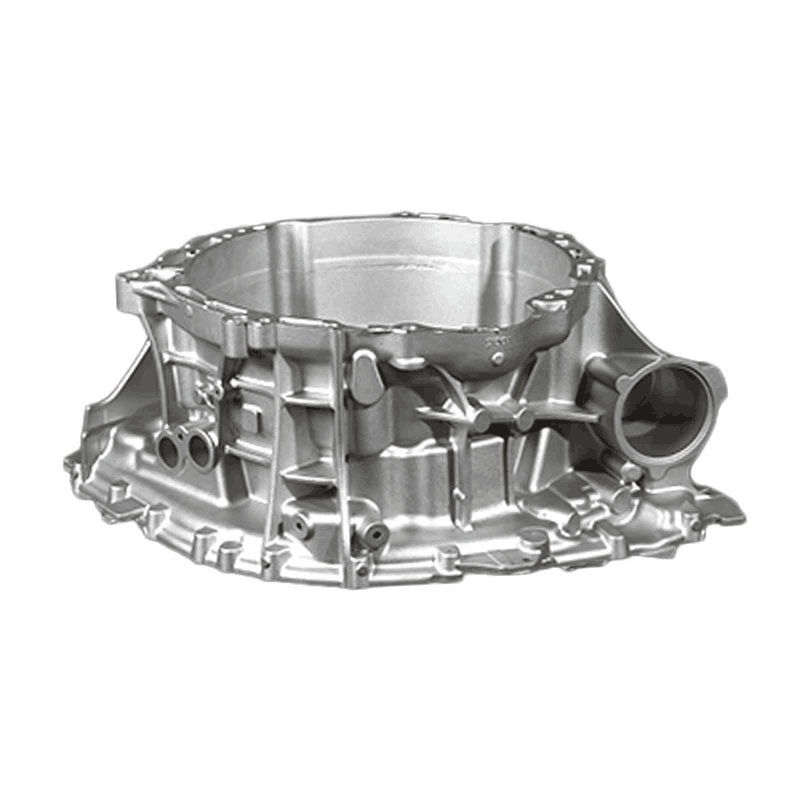BETTER TOUCH BETTER BUSINESS
Contact Sales at Lori.
Process and Advantages of Aluminum Die Casting
Aluminum die casting is a metal casting process that uses high pressure to inject molten aluminum alloy into precisely designed molds. This process can produce aluminum alloy parts with precise dimensions, smooth surfaces, and complex shapes. Aluminum die casting is typically used for mass production of parts since once the molds are made, large quantities of identical aluminum alloy parts can be rapidly produced.
The process of aluminum die casting generally includes the following steps:
1. Mold manufacturing: First, a precision mold or molds are designed and manufactured, typically using high-strength steel capable of withstanding high pressure and temperature.
2. Melting aluminum alloy: Heating the aluminum alloy material to its molten state in preparation for casting.
3. Casting: Injecting the molten aluminum alloy into the mold cavity. This process is typically conducted under high pressure to ensure that the metal fills all the intricate details of the mold.
4. Cooling and solidification: The molten aluminum alloy rapidly cools and solidifies within the mold.
5. Demolding: Removing the solidified aluminum alloy part from the mold.
6. Post-processing: Includes tasks such as removing gates, trimming, polishing, cleaning, heat treatment, surface treatment, etc., to meet final product requirements.
Advantages of aluminum die casting include:
1. High production efficiency: Once the molds are made, large quantities of parts can be quickly produced.
2. High part quality: Parts have precise dimensions, smooth surfaces, and good mechanical properties.
3. Ability to produce complex-shaped parts: Die casting can create parts with complex shapes and intricate details.
4. High material utilization: Die-cast parts typically require minimal additional machining, reducing material waste.
Disadvantages of aluminum die casting include high mold costs, which may not be economical for small batch production, and the potential for porosity and internal defects in die-cast aluminum parts, which need to be minimized through rigorous quality control and appropriate design.
Application in the Automotive Industry
The automotive industry has always pursued more advanced technologies and more efficient materials, and the advent of aluminum die-castings has injected new vitality into car manufacturing. In this era of increasing emphasis on environmental protection and energy efficiency, aluminum die-castings have become the gold standard for manufacturing cars due to their lightweight and high-strength characteristics.
Firstly, the application of aluminum die-castings in automotive manufacturing significantly improves the fuel economy of the entire vehicle. Compared to traditional cast iron components, the lightweight design of aluminum die-castings reduces the overall vehicle weight, thereby reducing fuel consumption. This is a significant advantage for automotive manufacturers, as it not only meets environmental standards but also enhances the market competitiveness of vehicles.
Secondly, the high strength of aluminum die-castings makes vehicles safer. In accidents such as collisions, the high strength of aluminum effectively protects the safety of occupants. This characteristic makes aluminum die-castings an ideal material for manufacturing vehicle body structures and key safety components.
In terms of automotive exterior design, aluminum die-castings also exhibit high ductility, allowing for the manufacture of more complex and stylish exteriors. This is particularly important in modern automotive design, where consumer demand for personalization and aesthetic design is increasing.
Overall, the application of aluminum die-castings in the automotive industry not only enhances the overall performance of products but also injects more innovative elements into car manufacturing. In the future, with continuous advancements in aluminum die casting technology, it is believed that it will play an increasingly important role in the automotive industry, driving the entire industry towards more environmentally friendly, intelligent, and efficient directions.

Copyright © 2025 Shenzhen Lori Technology Co.Ltd. | All Rights Reserved.